1. Three methods
1.1.load method
//Function: Add the data returned by the server directly to the DOM object that meets the requirements
//Equivalent to obj .innerHTML = Data returned by the server
Usage:
$obj.load(url,[request parameters]);
url: Request address
Request parameters:
The first form: request string, such as: 'username=zs&age=22'
The second form: object, such as {'username':'zs','age':22}
//Note:
//a, if the load method has no parameters, it will use the get method to send the request. If there are parameters, the post method will be used to send the request.
//b, if there are Chinese parameter values, the load method has already done the encoding for us.
Example:
$(function( ){
$('a.s1').toggle(function(){
var airline = $(this).parent().siblings().eq(0).text();
$(this).next().load('priceInfo.do','airline=' airline);
$(this).html('Display economy class price');
},function( ){
$(this).next().empty();
$(this).html('Show all fares');
});
});
1.2.$.get() and $.post() methods
//Function: Send get or post request to the server (get request ie has caching problem)
Usage:
$.get(url,[data],[callback],[type]);
$.post(url,[data],[callback],[type]) ;
url: request address
data: request parameters, the form is the same as above.
callback: callback function, which can be used to process the data returned by the server.
Callback format:
function(data, statusText),
Among them, data can get the data returned by the server,
statusText is a simple string describing the processing by the server state.
type: The data type returned by the server. The type can be:
html: Returns html content.
text: Returns text.
json: returns a json string
xml: returns a DOM-compatible xml object
script: returns javascriptz
Example:
function quoto(){
$.post('quoto.do',function(data) {
//If the data returned by the server is a json string,
//will be automatically converted into a js object or an array of json objects.
$('#tb1').empty();
for(i=0;i
'
'
'
'
}
},'json');t
}
1.3.$.ajax(options):
/ /options is a js object in the shape of {key1:value1,key2:value2...}, used to specify options for sending requests.
option parameters are as follows:
url(string) : //Request address
type(string) : //GET/POST
data(object/string) : // Data sent to the server
dataType(string): //The data type expected to be returned by the server
success(function): //The callback function called after the request is successful, has two parameters:
function(data , textStatus),
where data is the data returned by the server,
textStatus is a string describing the status.
error(function): //Function called when the request fails, with three parameters
function(xhr, textStatus, errorThrown),
where xhr is the underlying ajax object (XMLHttpRequest),
textStatus , one of the two parameters errorThrown
can obtain the underlying exception description.
async:true (default)/false: //When the value is false, send a synchronous request.
Example:
$(function(){
$('#s1').change(function(){
$.ajax({
'url':'carInfo. do',
'type':'post',
'data':'carName=' $('#s1').val(),
'dataType':'xml',
'success':function(data){
//data is the data returned by the server
//If an xml document is returned, we need to use
//$function to wrap it $(data) into a jQuery
//object for easy search
//clear before appending
$('#tb1').empty();
$('#tb1').append(
'
$(data).find('company').text()
' Price:' $(data).find('price ').text()
'
$(data).find('size').text()
'Number of doors:' $ (data).find('door').text()
'
$(data).find('vol').text()
'Acceleration performance:'
$(data).find('speed').text()
'
//To convert the table Display
$('#tips').slideDown('slow');
setTimeout(function(){
$('#tips').fadeOut('slow');
},2000);
},
'error':function(){
$('#tb1').append(
"
$('#tips').slideDown('slow');
}
});
});
});
Example 2:
Solving the problem of Chinese garbled characters:
$.ajax({
'url':'netctoss7/ajaxCode',
'type':'post',
'data':{name:value},
'dataType':'json',
'async':false,
'success':function(data){
if(data) {
$('#msg_verCode').text('');
v1=true;
}else{
$('#msg_verCode').text('Verification code error') ;
}
}
});
2. Two auxiliary methods
2.1.serialize():
//Convert the form or form control contained in the jquery object into a query string.
2.2.serializeArray():
//Convert to an array, each array element is an object in the shape of {name:fieldName,value:fieldVal}.
//The role of serialized elements is mainly used in ajax requests to assign values to data.
Note:
can only be used for forms or form controls
Send the name of the form and the corresponding value directly, in the form: name=value
Example:
$.ajax({})
// 'data':'carName=' $('#s1').val(),
'data':$('#s1').serialize(),
//'data' :{'carName':$('#s1').val()},
'data':$('#s1').serializeArray(),
 jquery实现多少秒后隐藏图片Apr 20, 2022 pm 05:33 PM
jquery实现多少秒后隐藏图片Apr 20, 2022 pm 05:33 PM实现方法:1、用“$("img").delay(毫秒数).fadeOut()”语句,delay()设置延迟秒数;2、用“setTimeout(function(){ $("img").hide(); },毫秒值);”语句,通过定时器来延迟。
 jquery怎么修改min-height样式Apr 20, 2022 pm 12:19 PM
jquery怎么修改min-height样式Apr 20, 2022 pm 12:19 PM修改方法:1、用css()设置新样式,语法“$(元素).css("min-height","新值")”;2、用attr(),通过设置style属性来添加新样式,语法“$(元素).attr("style","min-height:新值")”。
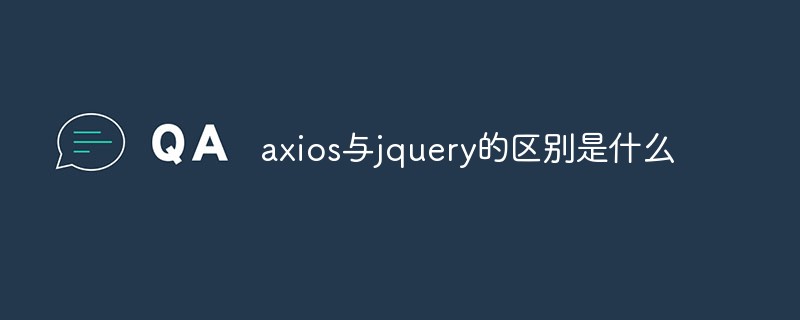 axios与jquery的区别是什么Apr 20, 2022 pm 06:18 PM
axios与jquery的区别是什么Apr 20, 2022 pm 06:18 PM区别:1、axios是一个异步请求框架,用于封装底层的XMLHttpRequest,而jquery是一个JavaScript库,只是顺便封装了dom操作;2、axios是基于承诺对象的,可以用承诺对象中的方法,而jquery不基于承诺对象。
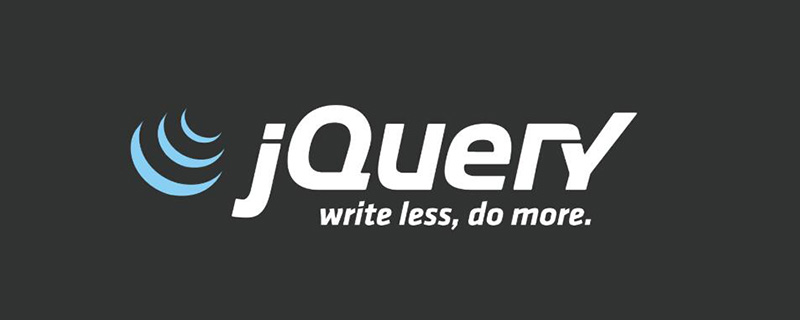 jquery怎么在body中增加元素Apr 22, 2022 am 11:13 AM
jquery怎么在body中增加元素Apr 22, 2022 am 11:13 AM增加元素的方法:1、用append(),语法“$("body").append(新元素)”,可向body内部的末尾处增加元素;2、用prepend(),语法“$("body").prepend(新元素)”,可向body内部的开始处增加元素。
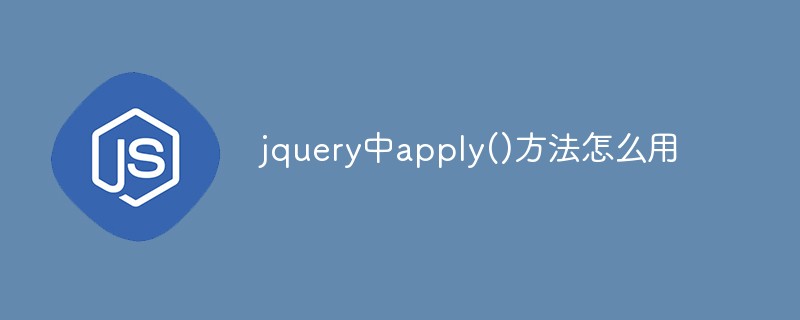 jquery中apply()方法怎么用Apr 24, 2022 pm 05:35 PM
jquery中apply()方法怎么用Apr 24, 2022 pm 05:35 PM在jquery中,apply()方法用于改变this指向,使用另一个对象替换当前对象,是应用某一对象的一个方法,语法为“apply(thisobj,[argarray])”;参数argarray表示的是以数组的形式进行传递。
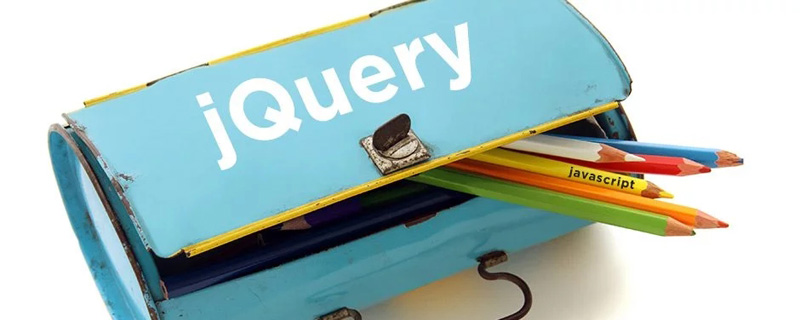 jquery怎么删除div内所有子元素Apr 21, 2022 pm 07:08 PM
jquery怎么删除div内所有子元素Apr 21, 2022 pm 07:08 PM删除方法:1、用empty(),语法“$("div").empty();”,可删除所有子节点和内容;2、用children()和remove(),语法“$("div").children().remove();”,只删除子元素,不删除内容。
 jquery on()有几个参数Apr 21, 2022 am 11:29 AM
jquery on()有几个参数Apr 21, 2022 am 11:29 AMon()方法有4个参数:1、第一个参数不可省略,规定要从被选元素添加的一个或多个事件或命名空间;2、第二个参数可省略,规定元素的事件处理程序;3、第三个参数可省略,规定传递到函数的额外数据;4、第四个参数可省略,规定当事件发生时运行的函数。
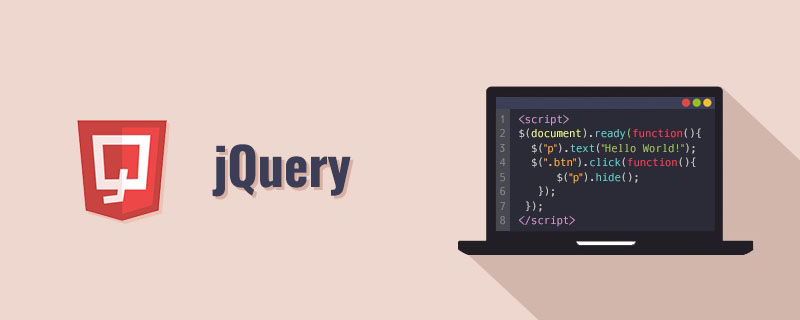 jquery怎么去掉只读属性Apr 20, 2022 pm 07:55 PM
jquery怎么去掉只读属性Apr 20, 2022 pm 07:55 PM去掉方法:1、用“$(selector).removeAttr("readonly")”语句删除readonly属性;2、用“$(selector).attr("readonly",false)”将readonly属性的值设置为false。


Hot AI Tools

Undresser.AI Undress
AI-powered app for creating realistic nude photos

AI Clothes Remover
Online AI tool for removing clothes from photos.

Undress AI Tool
Undress images for free

Clothoff.io
AI clothes remover

AI Hentai Generator
Generate AI Hentai for free.

Hot Article

Hot Tools

SublimeText3 Chinese version
Chinese version, very easy to use

Dreamweaver Mac version
Visual web development tools

WebStorm Mac version
Useful JavaScript development tools

Notepad++7.3.1
Easy-to-use and free code editor

SecLists
SecLists is the ultimate security tester's companion. It is a collection of various types of lists that are frequently used during security assessments, all in one place. SecLists helps make security testing more efficient and productive by conveniently providing all the lists a security tester might need. List types include usernames, passwords, URLs, fuzzing payloads, sensitive data patterns, web shells, and more. The tester can simply pull this repository onto a new test machine and he will have access to every type of list he needs.






